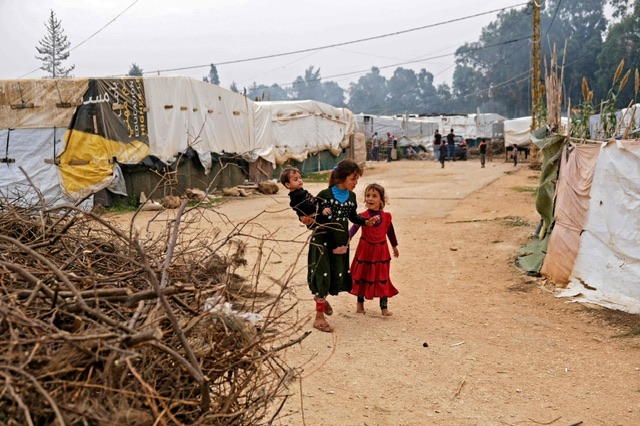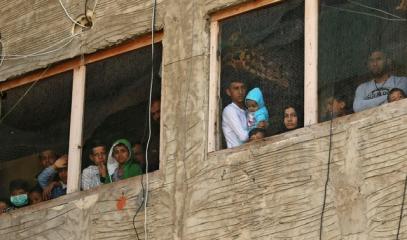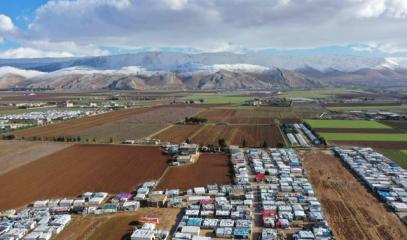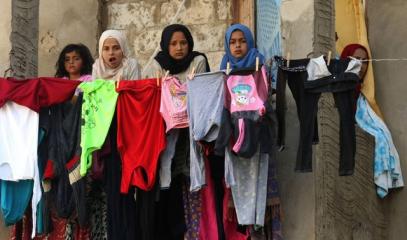Lebanon and the impossible mission of repatriating Syrian refugees
The economic and human burden of displaced Syrians in Lebanon has become unbearable. The government is trying to do its utmost to identify and repatriate some two million refugees, knowing that their presence risks altering the country’s ethno-demographic balance. Yet, the prospect of return is opposed by Syrians who fled Assad and do not believe in his reassurances.
Beirut (AsiaNews) – For the past few weeks, Syrian refugees in Lebanon have been living in fear of being sent home. "The honeymoon is over," said Mahmoud, who worries that he will have to regularise his papers in a few days at the General Security office, and fears arbitrary expulsion to his country.
In an effort to control the presence and movement of displaced Syrians in Lebanon, unofficially estimated at more than two million people (almost half as many as Lebanon’s own population of 4.5 million), the Ministry of the Interior has just ordered a census of all Syrians living in the approximately 4,000 sites.
These “camps" vary in size, ranging from a few tents to full-blown tent cities, like Arsal (Bekaa), which houses 80,000 Syrians, against a local population of 20,000.
At the same time, taking advantage of the diplomatic thaw between Syria and the other Arab countries, a ministerial commission was set up to open talks with the Syrian regime, with a view to repatriating displaced Syrians who have become too much of a burden, which Syria, some say, "does not want", for various reasons.
The effort to control the Syrian presence comes with a political and media campaign that highlights its demographic, economic and security effects, as well as the danger it represents, in the event of naturalisation, for the confessional balance between Christians and Muslims. About 90 per cent of displaced Syrians are Sunni, and multiplying given their high fertility rate (about 220,000 births since 2011).
The (very belated) realisation by Lebanese authorities of the situation is also accompanied by a xenophobic campaign in the media, and it is not clear which of the two came first.
What is certain is that public opinion has been progressively frustrated by the rise in the number of crimes committed by Syrians (a third of those in Lebanese prisons are Syrian nationals), as well as by the aid they receive from the UN High Relief Committee (UNHCR) and a host of foreign NGOs.
Such direct aid has given them a "privileged" status compared to Lebanon’s own poor, frustrated by the illegal competition in the labour market.
A wave of panic, even among Christians, is fuelled by the fear that this mass, which includes many men with military training, could become an armed force in the pay of some "plan" of replacement or annexation.
For this, Lebanon has no one but itself to blame for such an emerging sense of anarchy. When civil war broke out in Syria in 2011 and the repression of the "Syrian Spring" began, Lebanon opened its doors wide to the flood of refugees from war zones without restrictions and without measuring the consequences, unlike what was done in Turkey and Jordan where the flow of refugees was strictly regulated.
The fear of seeing all these Syrians integrated into the Lebanese population is openly fuelled by the very clumsy orientations of the High Relief Committee and the European Union which, in order to prevent waves of migration from Lebanon, actively improved, with cash and subsidies, the living conditions of displaced persons, while doing precious little for Lebanon’s own poor.
Quite apart from everything else, it goes without saying that the repatriation of this mass of people poses innumerable political and logistical problems.
Having given the Syrian regime the cold shoulder, like the rest of the Arab countries at the start of the civil war, Lebanon is now forced to reconsider this attitude, even though Syria is accused of not wanting the return of these displaced people, whom it will have to feed, because of food and other shortages, and the US Caesar law, which deprives Syria of the funds needed for reconstruction.
In any case, displaced Syrians themselves are resisting the idea of going back home, fearing that its authoritarian regime – which so far has resisted any reform – will arrest them or force them into military service.
“Enforced disappearances" are part of the regime's policy of terror. Indeed, “More than 110,000 people are still missing in Syria, primarily at the hands of the Assad regime,” said Jean-Pierre Filiu, a university professor at Sciences-Po (France).
In any case, as the situation is still evolving, uncertainty still reigns in Lebanon as to future developments.










.png)










